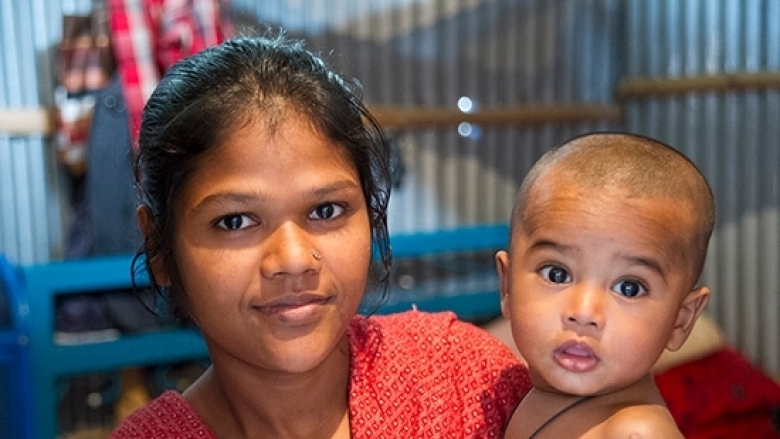On June 24th, International Justice Mission (IJM) petitioned the Dominican Supreme

Court (also known as the Constitutional Court) to declare child marriage unconstitutional, as it is a violation of the fundamental rights of children and adolescents. Since then, over 15 other civil society organizations and coalitions have joined their voices to demand change.
Demanding public policy changes is a first-of-its-kind initiative for IJM in the Dominican Republic. Motivated by a recent study on child marriage that shows that more than 650 million girls and adolescents worldwide suffer gender violence, of which 60 million live in the Latin American region, the IJM team reviewed the Dominican law. They found that laws and articles from the Dominican Civil Code and Dominican Penal Code violate child rights and contradict specific articles in the Dominican Constitution and the Convention on the Rights of the Child*.
The Dominican Republic has one of the highest rates of child marriage in the Latin America and Caribbean region. By law, boys 16 years old and older, and girls 15 years old and older can legally get married with authorization from their parents or legal guardians. “Younger children are allowed to get married with additional authorization issued by a judge. Because there is no limit by law of how young a child can be to receive this special permission, children as young as 12 years old could be forced to marry” explains Sonia Hernandez, Associate Director, Public Justice System Strengthening for IJM. Child marriage affects both boys and girls, but it is exponentially more dangerous for girls.
‘‘In the world and in the Dominican Republic, the problems involved in child marriages and early unions have been brought to the fore. If we analyze it conscientiously, child marriage becomes a permit for an adult who seduces a minor and who, to cover up his crime and avoid criminal consequences, marries the victim, which represents not only a serious violation of the fundamental rights of the minor, but great danger to the child,” condemned Hernández.
On July 24th, IJM and the 15 other organizations used Twitter as a first step to create awareness of the issue and demand that the Constitutional Court respond to the request and do it swiftly. There have been over 3,000 tweets with the hashtags #nolacases (#dontmarryher) and #niñasnoesposas (#girlsnotwives).
IJM’s focus in the Dominican Republic since 2014 has been to collaborate with local authorities to reduce the prevalence of sex trafficking. In the Dominican Republic, like in other places in the world, “child marriage constitutes a harmful practice that especially affects girls and adolescents, by limiting their development opportunities and exposing them to violence, sexual abuse, early pregnancy, dropping out of school and even sex trafficking,’’ said Hernández.

Currently, IJM is supporting local authorities to investigate a case in which they suspect a 9-year-old and an 11-year old have been given in marriage to older men with the permission of their parents. IJM will continue supporting local authorities as they protect children from sex trafficking and other forms of violence and will continue to collaborate with other organizations to request that child marriage be declared unconstitutional in the country.
* The laws and articles reviewed are Articles 144, 145, 149 and 150 of the Dominican Civil Code, 56 number 5 of Law 659 on Acts of Civil Status, 356 of the Dominican Penal Code, 39.4, 43 and 56 of the Dominican Constitution, and Articles 2 and 12 from the Convention on the Rights of the Child.



